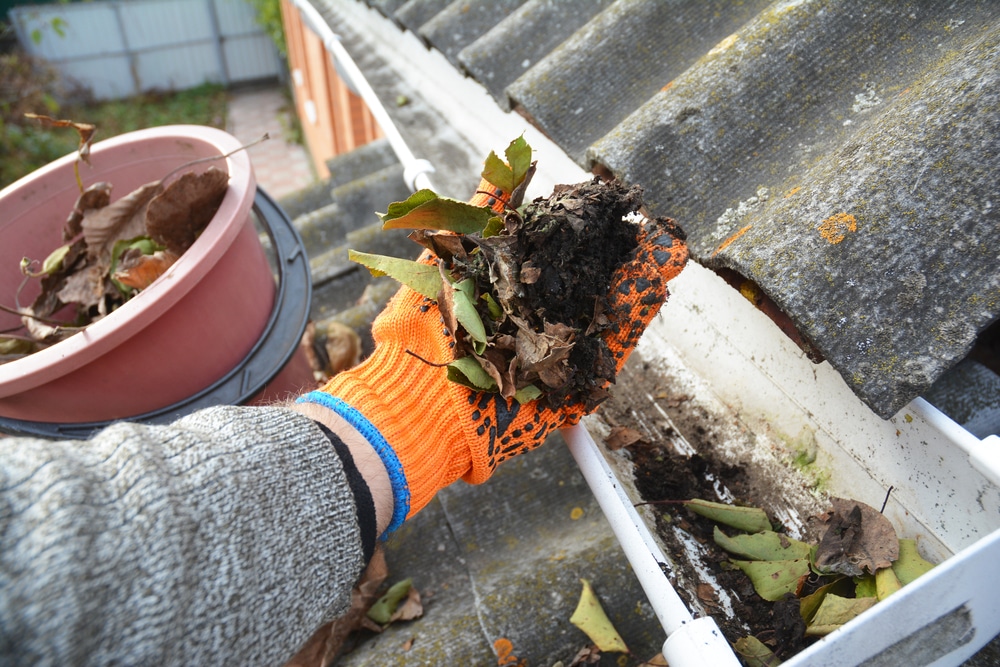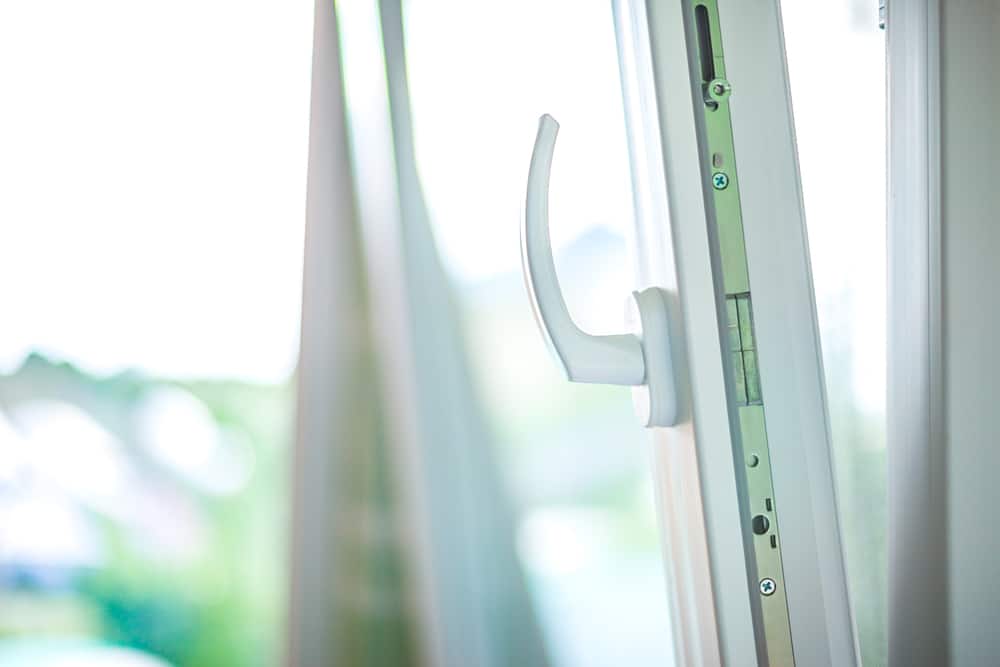Jasmine Birtles
Your money-making expert. Financial journalist, TV and radio personality.

If the sun is shining start thinking of boilers because you can save money by doing winter things in the summer.
Yes, weirdly enough, the height of summer is the time to get home improvements done for the winter. As well as being a fantastic opportunity to clear out and cash in on unwanted items, you should also conduct an ‘energy spring clean’ which could save you loads.
Doing winter things in the summer might seem strange, but it’s actually the best time to do it, as there are some great deals around at the moment that can save you money. Here is our list of the most important things to get fixed this summer:

Get it checked now. It’s just not worth the risk – if you don’t have it serviced before winter it might break just when you need it the most. If it claps out during the Christmas holidays you could find yourself having to go for over a week without any heating or hot water.
If your boiler is over 10 years old then you should think about replacing it anyway. While this is usually quite an expensive task, as boilers account for up to 60% of your annual energy bill a new, efficient boiler can make a huge difference to your finances.
Companies like British Gas, EON and EDF Energy offer finance deals that are worth checking out to see if you are eligible and BOXT have money off some of their range of boilers over the summer months. You can get £200 off a new boiler with British Gas if you book an appointment before the end of July 2022.
Keep in mind that you might be able to find a local plumber who can do the job for less. Get recommendations from friends and neighbours of CORGI registered local plumbers and ask them to give you a quote.
Now is a good time to look into insuring your boiler too, if you have an old boiler that you don’t quite trust. There are various boiler (and other appliance) insurance products but many are overpriced. Check out our article on boiler insurance to see what the best deals are and whether it is worth it for you.
Insulation is absolutely essential for all homes, particularly in the winter. Proper insulation keeps your house warmer, it saves energy and it saves you money as well.
The Energy Saving Trust has worked out that if you increase you insulation in the loft from 0 or 50 mm to 270mm it would normally cost about £250 to install, but that could save you up to £145 per year on your heating bill. To help you with the cost of this British Gas are offering FREE loft insulation and FREE cavity wall insulation so it well worth checking to see if your home is elible.
There are many things you should insulate in your home including pipes, the walls and, of course, your loft. For more information read our article on how to save money by insulating your house.

Frost and snow wreak havoc with your gutters. Frozen autumn leaves add significant weight to the gutters which can result in cracks – damaging your gutters. If you don’t unblock your gutters it can send rain water trickling down the side of your house, which can lead to damp, rot and rust spreading throughout your house.
It’s much easier to clear your gutters before the start of winter, so take a look at them while the weather’s good and check them again in autumn once the leaves have fallen. And while you’re up there it’s a good idea to check for any damaged tiles and slates on the roof.
To help prevent your gutters getting blocked, try a gutter guard which prevent anything, except water from blocking up your gutters. You can get four metres for £5.59 from Wickes and you simply clip the guards to the top of the drains – they can fit both square and rounded gutters.

If your house is feeling a bit drafty then it may be worth while investing in double glazing. It acts just like loft insulation, it’s made of two panes of glass with a gap in the middle which helps keep the heat in rather than letting it escape. Although it might be expensive to install according to the Energy Saving Tust it could save you a whopping £135 off your annual heating bill.
You must be very cautious when it comes to installation though. Make sure you shop around, double-glazing companies are notorious for hard selling so make sure you only go with companies you know to be trustworthy.
If you don’t look after your pipes properly, then your pipes won’t look after you. If your pipes freeze in the cold weather they could burst and flood your home. This can be prevented by insulating your pipes so that they don’t get cold enough to freeze up. You should also locate where the main water tap is in your house, so if by chance your pipes do burst, you at least know where to turn the water off.
You can apply pipe insulation to your pipes without calling in help. You can buy insulation at the thickness you want from DIY stores.

If you already have small cracks appearing in your driveway, it’s worth filling them in now. When the cold weather hits, the frost and snow will expand and shrink the tarmac, which means that by the end of winter the once small cracks have now become serious problems.
If the cracks are small you can fill them in yourself, You can get concrete sealant from about £16. Simply remove debris from the crack, apply the sealant, wipe off the excess and leave to dry.

If you intend to use your chimney this year – for something other than a way for Father Christmas to enter your home – it is worth having them swept. Birds regularly build nests in chimneys which can result blockages and in turn can lead to chimney fires. Repeated freezing and thawing, as well as general wear and tear, can also lead to cracks and deterioration of the brick work.
You should have your chimney checked at least once a year if you have a coal fire, and always have a chimney swept if it has been unused for some time. You still need to have your chimney swept if you have a gas fire, as an obstruction in your chimney could cause harmful carbon monoxide to be trapped and re-enter your home. Having your chimney swept can cost around £40.

When you have decided what needs doing then start looking for workers do it. Ask friends and family for recommendations and check out websites like Rated People and TrustATrader for workers that others have vetted. All you have to do is select the kind of work you need and type in your postcode to find all the local businesses that have been recommended by satisfied customers.
Any work with gas supplies has to be done by a fitter registered with the Gas Safe Register so make sure you check credentials.

There are lots of ways to find reliable and satisfactory companies in your area:


As there are a lot of builders, plumbers and other workers looking around for jobs right now, you’re in a good position to negotiate. You’re doing this work now because it’s cheaper so make sure you get the best deal possible.
Get some estimates and compare prices. Always get at least three quotes. If you need more than one thing doing and the company you are looking at could do it all, then ask for a discount. If they aren’t busy they should be able to offer more competitive prices because they’ll want your business.
If you ask, you should be able to ge the builder to guaranteed his or her work for a period of time, such as 12 months. It’s vital to get this guarantee in writing, make sure they’ll come back and do any necessary remedial work or check whether you would have the choice of getting someone else to do it.

When you seal the deal, ask to see a copy of the insurance certificate and ensure that it won’t expire during the time they are working on your project. If a builder doesn’t offer their own insurance you can purchase insurance yourself.
According to Which? there are three things that you need:

It’s all very well hiring somebody, but what happens when it’s finished and you discover it’s already falling to pieces? Make sure you keep an eye on what they’re doing and ask for regular updates on progress, that way you can put right any mistakes and clear up any mis-communications. Contact your local Citizens Advice Bureau if you can’t resolve it yourself.
Never pay for all the work up front just in case something goes wrong. Make sure that you draw up with the builder a schedule of payment for each stage of the work. Ideally, you should agree to release money only when each stage of the work is finished, to the specification provided and to your satisfaction, that will encourage them not to drag their feet. If you do this you won’t pay for something to be done wrong or late.


I’m a landlord and I pay additional to make sure that EVERYTHING is serviced. I’m responsible for them as much as they are for paying their rent. After watching Watch Dog, I’ve also installed additional purpose made fire alarms in all the children’s rooms #wakeupcall
It’s definitely worth having you boiler regularly serviced, so you don’t get caught out with an unexpected breakdown.
British Gas offers the free of charge Loft and Cavity Insulation to EVERYBODY, not just homeowners. And you dont have to just be a British Gas customer to qualify. I am an Energy Expert that works for British Gas and carries out Energy Surveys. If you want any questions answered you are welcome to call me on 07789577056 and I will help as much as I can, even arrange for a survey appointment if you want.
why are all your money saving ‘tips’ aimed at only those people with mortgages what about the poor people who can only afford to rent from the council
The council have a duty of care to you also! It might be worthwhile asking what their policy is on these checks such as boiler etc. The guttering and driveway are tenant duty to a degree though. Use the information as evidence to the council as something they should be providing sooner rather than later when more costly to themselves to rectify. It would be great to hear about how you have taken this further if you wish to do so.